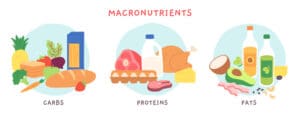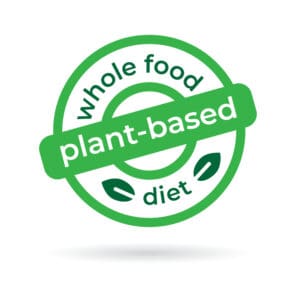No supplement can cure illnesses or avoid them. With the 2019 COVID-19 coronavirus pandemic, it is extremely important to recognise that you will not be shielded from COVID by any supplement, diet or other lifestyle adjustment other than physical distancing, also known as social distancing, and good hygiene practises. No research currently supports the use of any supplement to safeguard against COVID. You will wonder how to help your body fight off diseases if you want to improve your immune system.
Although it’s easier said than done to improve your immunity, some dietary and lifestyle changes will strengthen the natural defences of your body and help you combat harmful pathogens or organisms that cause disease.
1. Get a sufficient amount of sleep

Sleep and immunity are deeply linked. In reality, sleep of insufficient or low quality is associated with a greater susceptibility to sickness. Having ample rest will reinforce your natural immunity. Also, to allow your immune system to better battle the disease, you should sleep more when sick. Adults should try to get 7 or more hours of sleep each night, while teenagers require 8-10 hours and up to 14 hours for younger kids and babies.
Sleep hygiene tips include sleeping or using a sleep mask in a fully dark room, going to bed every night at the same time, and getting regular exercise.
2. Using more balanced fats to eat

By decreasing inflammation, healthy fats, such as those found in mustard oil and other healthy cooking oil will improve your body’s immune response to pathogens. Chronic inflammation can weaken your immune system, while low-level inflammation is a natural response to stress or injury.
The highly anti-inflammatory olive oil is related to a reduced risk of chronic diseases such as heart disease and type 2 diabetes. Plus, its anti-inflammatory properties can help your body fend off bacteria and viruses that cause harmful diseases. Omega-3 fatty acids also combat inflammation, such as those in salmon and chia seeds.
Related:
3. Eat more whole foods from plants

Whole plant foods are rich in nutrients and antioxidants, such as fruits, vegetables, nuts, seeds, and legumes, which can give you an upper hand against pathogenic organisms. By fighting unstable compounds called free radicals, antioxidants in these foods help minimise inflammation.
Chronic inflammation, including heart disease, Alzheimer’s, and some cancers, is related to various health conditions.
Related: The World’s Most Nutritious Food! According to Science
4. Eat or use a probiotic supplement with more fermented foods

Fermented foods, which populate your digestive system, are rich in beneficial bacteria called probiotics. Yogurt, sauerkraut, kimchi, and natto are among these foods. In a 28-day analysis of 152 rhinovirus-infected individuals who were supplemented with probiotic Bifidobacterium animalis, the immune response and virus levels in their nasal mucus were higher than those in the control group.
5. Limit the sugar in your diet

Emerging research indicates that added sugars and refined carbohydrates may lead disproportionately to obesity and obesity.
In about 1,000 individuals, people with obesity who were given the flu vaccine were twice as likely to still get the flu as individuals without obesity who got the vaccine, according to an observational report. Curbing the consumption of sugar will minimise inflammation and help weight loss, thus reducing the risk of heart disease.Given that obesity, type 2 diabetes, and heart disease can all weaken the immune system, it is a necessary part of an immune-boosting diet to reduce added sugar. You should aspire to restrict your consumption of sugar to less than 5% of your daily calories. For someone on a 2,000-calorie diet, this equals about 2 teaspoons of sugar. Mustard oil also supports heart health.
Related: Why should you limit your sugar intake?
6. Commit to moderate exercise

Although your immune system can be suppressed by excessive intensive exercise, moderate exercise can give it a boost. Even a single session of moderate exercise will improve the efficacy of vaccines in people with compromised immune systems, studies show. What’s more, daily, moderate exercise will decrease inflammation and help regularly rebuild your immune cells.
Steady bicycling, Running, walking, swimming, and light hiking are examples of moderate exercise. The majority of individuals should strive for at least 150 minutes of moderate workout each week.
Related: How to do exercise at Gym in a right way?
7. Remain hydrated

Hydration does not generally protect you from germs and viruses, but it’s vital for your general health to avoid dehydration. Dehydration can cause headaches and impair the function of your physical performance, attention, mood, digestion, and heart and kidney. Such problems will increase your vulnerability to illness.
You should consume enough fluid everyday to keep your urine pale yellow in order to avoid dehydration. While tea and juice are both hydrating, because of their high sugar content, it is better to reduce your consumption of sweetened tea. You can drink when you’re thirsty, as a general rule, and stop when you’re no longer thirsty. When you workout intensely, work outdoors, or live in a hot environment, you can need more fluids. It is important to remember that, when their bodies do not properly signal hunger, older adults tend to lose the desire to drink. Older people, even though they do not feel thirsty, need to drink frequently.
8. Responsibly supplement

If you hear arguments about their ability to treat or prevent COVID-19, it’s easy to turn to supplements. These claims, however, are baseless and untrue. No evidence exists to justify the use of any supplement to prevent or treat COVID-19, according to the National Institutes of Health. Some studies, however, suggest that the following supplements can improve the general immune response of your body:
From vitamin C. In more than 11,000 individuals, taking 1,000-2,000 mg of vitamin C a day shortened the period of colds by 8 percent in adults and 14 percent in infants, according to a study. Yet, to begin with, supplementation did not prevent the cold.
Elderberry
A small report stated that elderberry may reduce the symptoms of upper respiratory viral infections, but more studies are required.
Echinacea
A review of over 700 individuals showed that those taking echinacea recovered marginally faster from colds than those receiving placebo or no medication, but the difference was negligible.
Garlic
A high-quality, 12-week analysis of 146 individuals showed that garlic supplementation decreased the frequency of the common cold by about 30 percent. More study is required, however,
Although these supplements have shown promise in the above studies, that doesn’t mean that they are successful against COVID-19. Additionally, supplements are vulnerable to mislabeling because the Food and Drug Administration does not control them (FDA).
